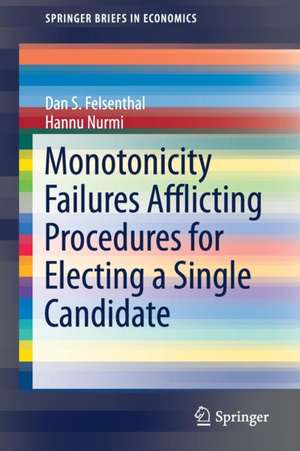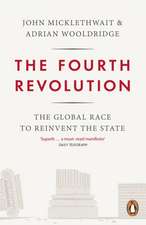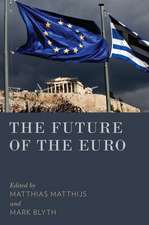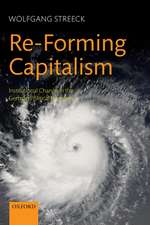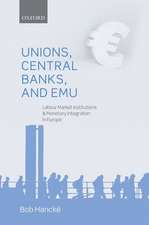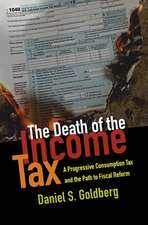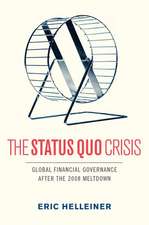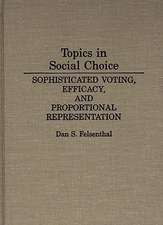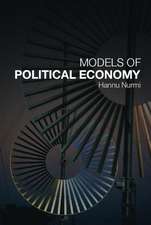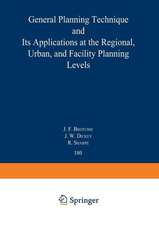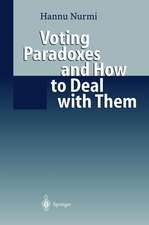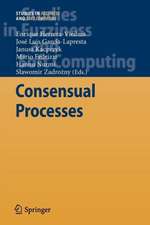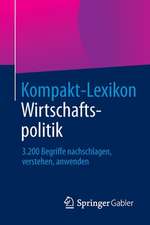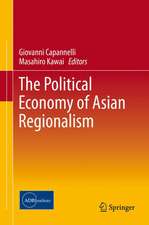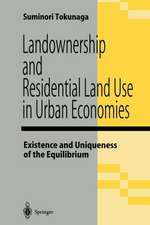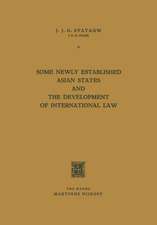Monotonicity Failures Afflicting Procedures for Electing a Single Candidate: SpringerBriefs in Economics
Autor Dan S. Felsenthal, Hannu Nurmien Limba Engleză Paperback – 17 feb 2017
Din seria SpringerBriefs in Economics
-
 Preț: 444.35 lei
Preț: 444.35 lei -
 Preț: 264.79 lei
Preț: 264.79 lei - 15%
 Preț: 462.51 lei
Preț: 462.51 lei -
 Preț: 47.33 lei
Preț: 47.33 lei -
 Preț: 353.14 lei
Preț: 353.14 lei -
 Preț: 273.32 lei
Preț: 273.32 lei -
 Preț: 376.04 lei
Preț: 376.04 lei -
 Preț: 379.09 lei
Preț: 379.09 lei -
 Preț: 380.07 lei
Preț: 380.07 lei -
 Preț: 377.35 lei
Preț: 377.35 lei -
 Preț: 379.09 lei
Preț: 379.09 lei -
 Preț: 376.59 lei
Preț: 376.59 lei -
 Preț: 408.27 lei
Preț: 408.27 lei -
 Preț: 379.09 lei
Preț: 379.09 lei -
 Preț: 383.28 lei
Preț: 383.28 lei -
 Preț: 378.54 lei
Preț: 378.54 lei -
 Preț: 377.95 lei
Preț: 377.95 lei -
 Preț: 340.23 lei
Preț: 340.23 lei -
 Preț: 380.25 lei
Preț: 380.25 lei -
 Preț: 378.12 lei
Preț: 378.12 lei -
 Preț: 376.04 lei
Preț: 376.04 lei -
 Preț: 376.04 lei
Preț: 376.04 lei -
 Preț: 379.68 lei
Preț: 379.68 lei -
 Preț: 381.00 lei
Preț: 381.00 lei -
 Preț: 375.23 lei
Preț: 375.23 lei -
 Preț: 376.80 lei
Preț: 376.80 lei -
 Preț: 378.54 lei
Preț: 378.54 lei -
 Preț: 377.57 lei
Preț: 377.57 lei -
 Preț: 376.04 lei
Preț: 376.04 lei -
 Preț: 378.92 lei
Preț: 378.92 lei -
 Preț: 375.62 lei
Preț: 375.62 lei -
 Preț: 379.09 lei
Preț: 379.09 lei -
 Preț: 353.67 lei
Preț: 353.67 lei -
 Preț: 342.14 lei
Preț: 342.14 lei -
 Preț: 375.45 lei
Preț: 375.45 lei -
 Preț: 379.09 lei
Preț: 379.09 lei -
 Preț: 377.35 lei
Preț: 377.35 lei -
 Preț: 344.86 lei
Preț: 344.86 lei -
 Preț: 377.35 lei
Preț: 377.35 lei -
 Preț: 345.89 lei
Preț: 345.89 lei -
 Preț: 377.57 lei
Preț: 377.57 lei -
 Preț: 343.83 lei
Preț: 343.83 lei -
 Preț: 378.12 lei
Preț: 378.12 lei -
 Preț: 345.06 lei
Preț: 345.06 lei -
 Preț: 379.48 lei
Preț: 379.48 lei -
 Preț: 379.48 lei
Preț: 379.48 lei -
 Preț: 380.07 lei
Preț: 380.07 lei -
 Preț: 375.45 lei
Preț: 375.45 lei -
 Preț: 445.33 lei
Preț: 445.33 lei -
 Preț: 378.54 lei
Preț: 378.54 lei
Preț: 410.01 lei
Nou
Puncte Express: 615
Preț estimativ în valută:
78.45€ • 81.92$ • 64.79£
78.45€ • 81.92$ • 64.79£
Carte tipărită la comandă
Livrare economică 15-29 aprilie
Preluare comenzi: 021 569.72.76
Specificații
ISBN-13: 9783319510606
ISBN-10: 3319510606
Pagini: 88
Ilustrații: VIII, 88 p.
Dimensiuni: 155 x 235 x 5 mm
Greutate: 0.15 kg
Ediția:1st ed. 2017
Editura: Springer International Publishing
Colecția Springer
Seria SpringerBriefs in Economics
Locul publicării:Cham, Switzerland
ISBN-10: 3319510606
Pagini: 88
Ilustrații: VIII, 88 p.
Dimensiuni: 155 x 235 x 5 mm
Greutate: 0.15 kg
Ediția:1st ed. 2017
Editura: Springer International Publishing
Colecția Springer
Seria SpringerBriefs in Economics
Locul publicării:Cham, Switzerland
Cuprins
Non-Monotonic Voting Methods: An Overview.- Descriptions of the Voting Methods to be Analyzed.- Some Theoretical Results on Monotonicity-Related Properties of Voting Rules.- Five Voting Rules Susceptible to Types of Monotonicity Failures Under Both Fixed and Variable Electorates.- Eight Voting Rules Susceptible to Types of Monotonicity Failures Under Variable Electorates.- Practical Significance and Open Problems.
Notă biografică
Dan Felsenthal is emeritus professor of political science at the University of Haifa. Currently he is also Research Associate at the Centre for the Philosophy of Natural and Social Science, London School of Economics and Political Science. His main research areas are measurement of voting power, voting theory and voting behavior, social choice theory, and various applications of game theory to politics. He has published many papers on these subjects as well as two books: Topics in Social Choice: Sophisticated Voting, Efficacy, and Proportional Representation (New York: Praeger, 1990), and (jointly with Moshé Machover) The Measurement of Voting Power: Theory and Practice, Problems and Paradoxes (Cheltenham, UK: Edward Elgar Publishing Ltd., 1998). In addition, he edited (jointly with Moshé Machover) the book Electoral Systems: Paradoxes, Assumptions, and Procedures (Berlin Heidelberg: Springer, 2012). Email: msdanfl@mail.huji.ac.il
Hannu Nurmi was the Associate Professor of Methodology of Social Sciences in University of Turku 1974 - 1995. Thereafter he became the chair holder of Political Science in the same university until his retirement in 2012.
During the academic year 1972-73 he was a Fulbright-Hayes Scholar at the Johns Hopkins University. In 1978 Nurmi held a British Academy Wolfson Fellowship at University of Essex and from 1991 till 1996 he was the Dean of the Faculty of Social Sciences in University of Turku. In 1998 he was a Visiting Professor at University of Minnesota. Nurmi was nominated the Academy Professor of Academy of Finland for the period 2003-2008. He is a member of Academia Scientiarum Fennica (the Finnish Academy of Sciences and Letters) from 1982. From 2008 till 2011 he was the Director of Centre of Excellence in Public Choice Research of University of Turku. From 2012 he is Professor Emeritus in the same university. Nurmi's research interests include the theory of voting and electoral systems, applied game theory and causal modeling. List of scientic publications: http://users.utu./hnurmi/homepage/webpub.pdf/
Caracteristici
First book devoted to monotonicity-related properties of voting rules Provides an evaluation of 18 voting procedures in terms of the most important monotonicity-related criteria in fixed and variable electorates Reveals the dilemma of non-motonotic procedures as a basis for elections Includes supplementary material: sn.pub/extras
